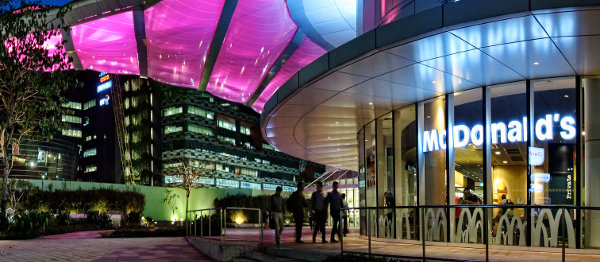The main use of a franchise business model is for the rapid scalability and expansion of a brand, yet, it’s no rarity to see franchise networks limited to one geographical continent, self-isolated to the market they are all so familiar with already. However, it’s not necessarily the unfamiliarity that puts franchises off expansions, it’s the dilution of the nature of a franchise itself. For example, one of the most important advantages of a franchise is the communal aspects, having a tightly-knitted network working independently but side-by-side at the same time creates an applied pressure where necessary and contextual support when needed.

We only tend to see massive franchise systems achieve globalisation because they have the resources to create an impactful launch which can establish them communal aspects all over again in an alternative continent. We are talking the McDonalds (Which were launching 2 branches a week in their prime), ServiceMasters, Hampton Hotels and Subways. These are the brands which have the power to achieve international expansion effectively, but is this really the case anymore? I don’t think so.
Sure, the diluted communal aspects of a franchise system were in the past a problem which absolutely limited brands, especially the smaller ones. I still think it’s an obstacle, but it’s an obstacle that can be overcome. How? Through technology. Until we develop speed-of-light commercial transport it’s always going to be a difficulty for international franchises to operate in-person events and conferences which can limit the connectivity of franchisees, but by implementing web-based franchise intranets and find digital formats for the lost communal touch It can overcome the obstacle of globalisation.
Here’s an example. estate agent franchise that operates in counties across the UK, expansion is limited by the 86 different counties and franchisees territories cannot be breached with additional branches. Expansion to the rest of Europe is ideal, it would allow room for future growth for decades to come and can establish the foundations of a globally recognised estate agency.
But how do you scale your ongoing training, support and community events to operate in another country that your brand isn’t even developed in yet? By establishing direct routes of communication through email, phone or franchise intranet systems this can be bypassed and if anything more effective as it creates a platform for collaborative learning which can be re-used for new franchisees.
An intranet system would ultimately be closed social network/forum for the franchise brand, enabling them to create a storage point for branch-specific progress and everything related to their franchise. It’s the same reason online forums are so successful, they provide a grounds for learning and communication which is simply unmatched.
To conclude, it’s fair to say that franchise systems will be reaping the rewards of tech-innovation through the adoption of communicative platforms. I strongly believe that we will see an increasing amount of small franchises take on franchisees globally and without geo-graphically limitations.
For more information on UK-based franchises, as well as updates on franchising in UK, please visit UK-Franchise
